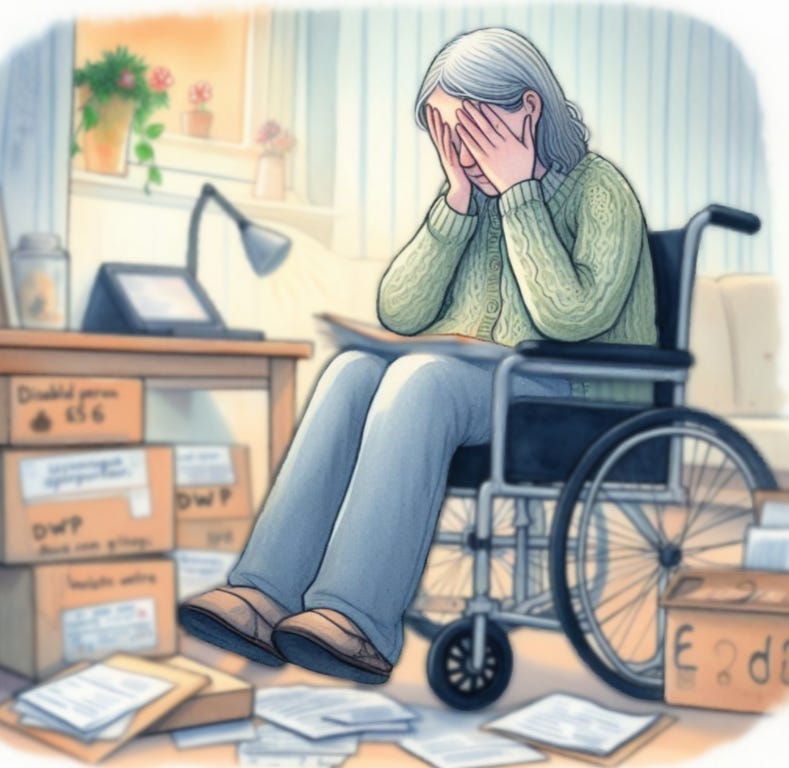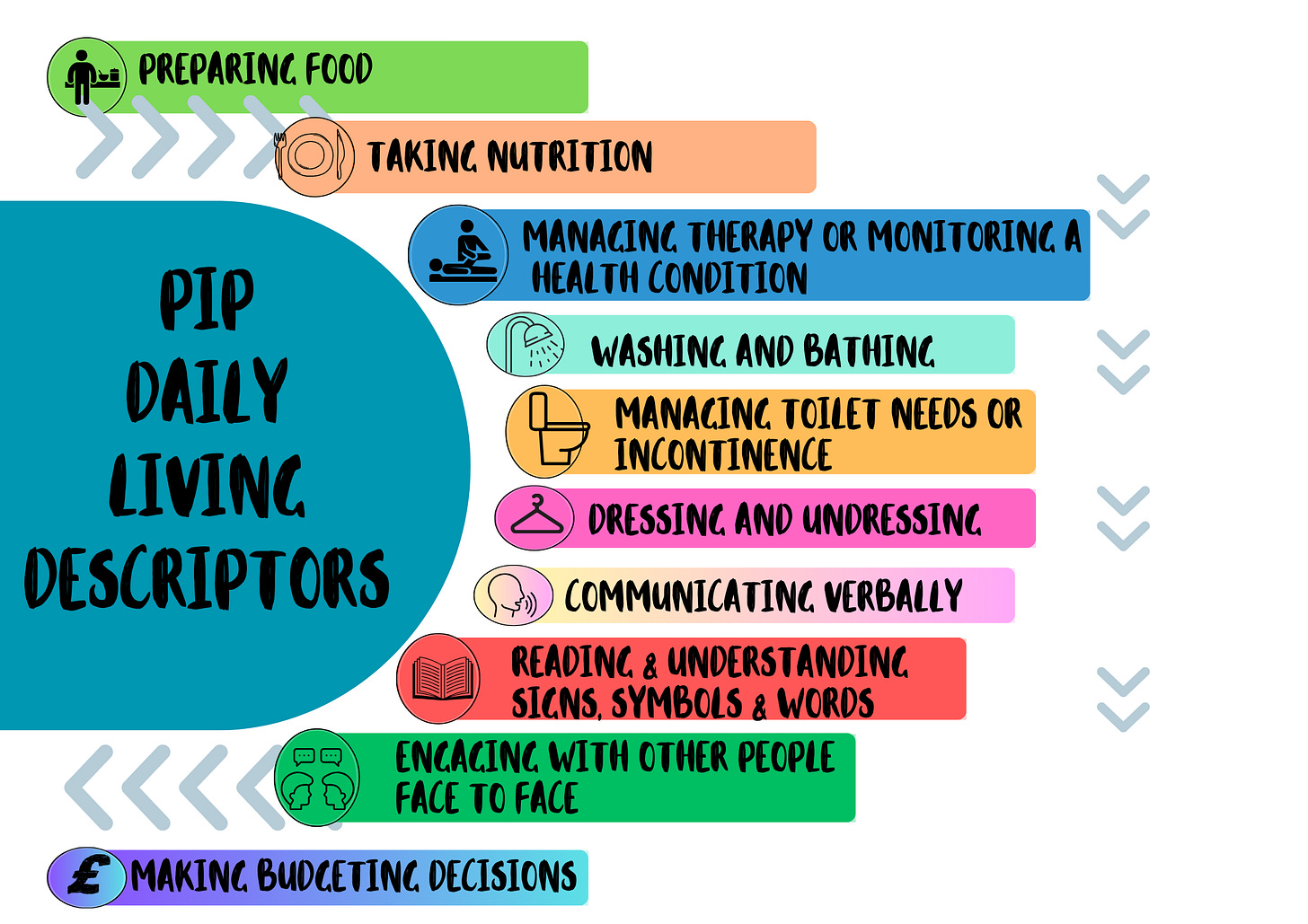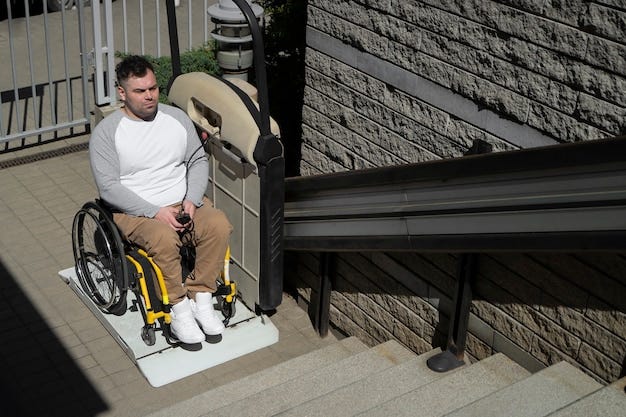Disabled and Dismissed: The Devastating Impact of PIP Reforms
As the government pushes sweeping changes to disability benefits, thousands fear losing essential support, leaving them financially vulnerable, struggling for independence and fighting to be heard.
A sweeping reform to the Personal Independence Payment (PIP) system has sparked fear among disabled people, particularly those with conditions like Multiple Sclerosis (MS). The new eligibility criteria will require claimants to score at least 4 points in one daily living activity. They could strip thousands of their support, leaving them financially vulnerable and struggling to maintain independence.
Living on the edge
My name is Yolanda Barker, and I am 53. I live in Ashford, Kent, and I have lived with MS for over 30 years. I currently receive PIP at the standard rate for Daily Living and an enhanced rate for Mobility. My daily living score is currently 9 points (awaiting appeal), but these are spread over various activities, with none reaching the new minimum of 4 points per activity. Under the proposed system, I will entirely lose the daily living component when my award is reviewed.
“I already had to fight for the support I get. Now, they’re moving the goalposts again. I have Progressive MS, and there is no cure. I try my hardest to do what I can, but there is so much I can't do, and I need support or aid for assistance. I no longer cook or shop anymore. I can’t make the bed, shower alone, pick tablets up from the floor or do anything without another person to assist me. My eyesight has been affected so much that I am no longer able to drive, so my freedom has gone.
Without the daily living component, my ability to afford things that support me and my husband in dealing with our daily lives is at risk. It would mean I would have to stop going to therapeutic groups, stop volunteering and even stop the muscle therapy I have monthly, which has made a difference to my body's movement and allowed me to do some stretching. Stopping that will put me back to square one. I use the money to keep my brain as active as possible to help others. That may have to stop, too.
The government claims these reforms will ensure funds go to those in greatest need, but for me and many like me, this feels like another step towards being abandoned by the system meant to protect us.
Are disabled people being blamed for economic woes?
Announced yesterday, 18th March 2025, by Liz Kendall, Secretary of State for Work & Pensions, the Government’s Green Paper repeatedly emphasises the growing cost of disability benefits, portraying the current system as unsustainable. While it does not explicitly blame disabled people for the economic struggles, the language suggests that rising claims are a problem that needs control. The document highlights the increasing number of people receiving PIP and other health-related benefits, framing it as a drain on the public purse.
Disability advocates have argued that this rhetoric risks reinforcing harmful stereotypes, making disabled people seem like financial burdens rather than people in need of support.
We already face discrimination daily. Now, the government is painting us to be the reason for the country’s financial problems.
Can disabled people get the help they need?
One of the reforms' key promises is to help more disabled people get back to work. However, how can this happen when access to essential NHS services remains inconsistent? The government plans to ensure patients receive treatment within 18 weeks of referral and increase NHS funding, but there is no guarantee that disabled people will receive the specialist care they need promptly. Indeed, this should be addressed before taking the one thing that could make a difference.
I rely on regular therapy, physio, occupational therapy and neurological check-ups, all of which require time off work. Will employers accommodate these needs?
Will employers hire disabled people?
The government claims its reform will encourage employers to hire more disabled people by offering guidance and support. However, it doesn’t address the reality that many employers prioritise reliability and consistency – qualities that can be difficult for people with chronic health conditions like MS.
Most employers won’t want to deal with my unpredictable fatigue, my appointments or the days I feel too ill to function.
Access to work: The promised safety net?
The government is reviewing the Access to Work scheme (ATW) to expand its reach and reduce delays.
Proposed changes include:
· Shifting focus from recruitment to retaining disabled workers.
· Reducing application backlogs (currently stands at over 60000 cases)
· Encouraging employers to take more responsibility before applying for government-funded adjustments
· Investing in assistive technology to make workplaces more accessible.
· Exploring alternative models for delivering the ATW scheme!
However, without strict enforcement, there is little assurance that employers will willingly implement these changes, mainly when their budgets are tight.
The Future of disability benefits: Uncertainty and Anxiety
The reforms will impact those receiving Employment Support Allowance (ESA) and Universal Credit (UC). Many claimants will now face work engagement meetings, even if they are not classified as fit for work. There are also plans to merge assessments for some benefits, which could lead to further eligibility restrictions.
For me, the uncertainty is unbearable. I’ve spent years adjusting to what is quite frankly “A crock of shite” thrown at me by MS and other conditions. I must not only appeal the benefit I currently receive but also fight for any future chance of support. I have never felt so worthless and despised by the government.”
What can be done?
Disability rights organisations urge affected individuals to respond to the government’s consultation. Legal advice, advocacy groups and charities can provide support for those facing benefit cuts.
Part of me remains determined.
“This isn’t just about me. It’s about every disabled person being told they don’t matter. We must stand up, speak out, and ensure they hear us.”
If you are affected by these reforms, respond to the government consultation, contact your MP and share your story.
The more voices are raised, the harder they will be to ignore.
PIP Descriptors – Government Information
mssociety - helpline with benefit advisers
True colours ISSN 2977-6120








